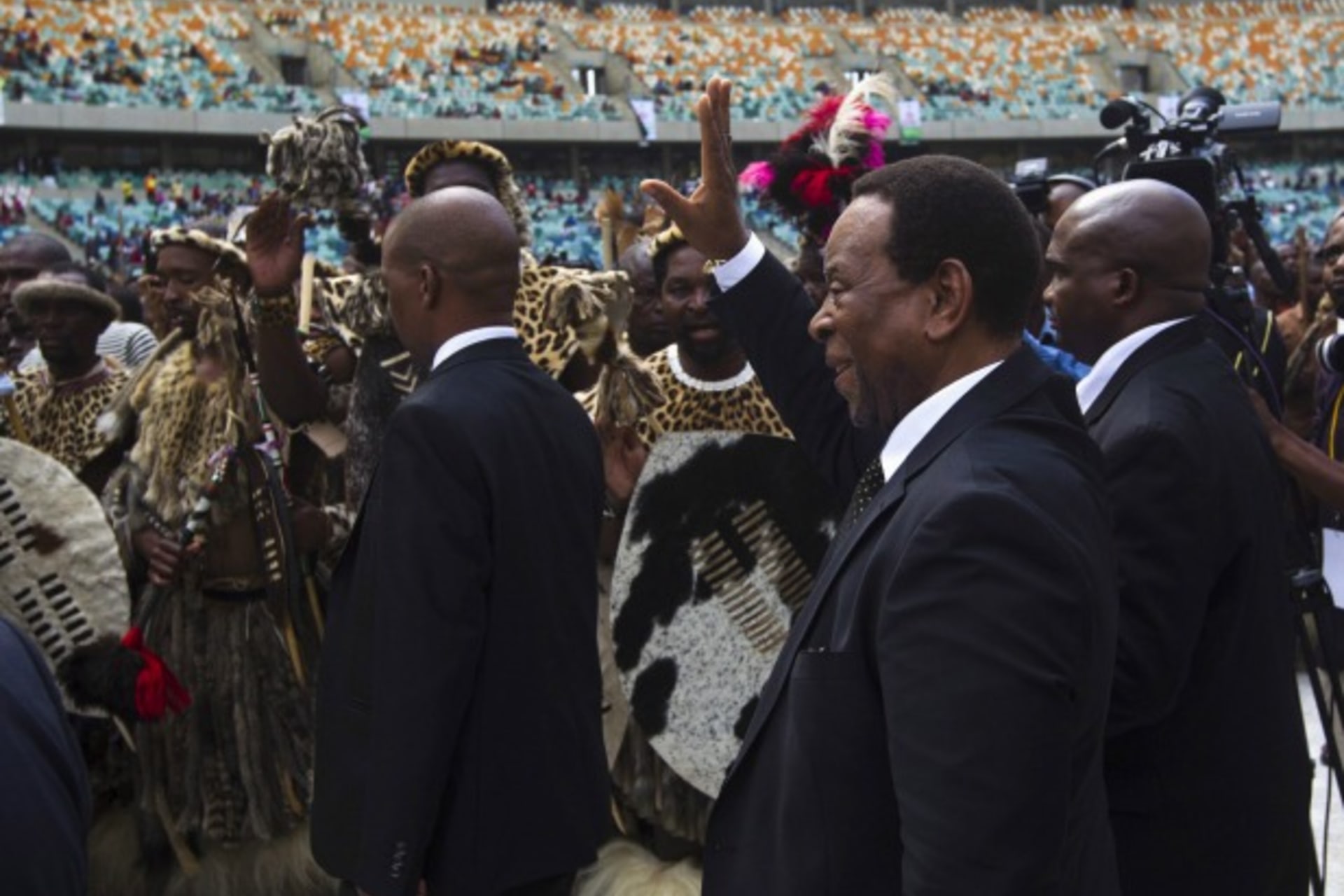Zulu King and South Africa’s Wave of Xenophobia

By experts and staff
- Published
By
- John CampbellRalph Bunche Senior Fellow for Africa Policy Studies
There is widespread anger across Africa toward the current South African government for its inability to mitigate the current wave of xenophobic violence. At least eight people have been killed and more than 1,000 foreigners have been displaced from their homes and places of business in KwaZulu-Natal. African media is evoking the memory of the continent-wide assistance offered to the liberation movements, especially the governing African National Congress (ANC), in the anti-apartheid struggle.
The xenophobic attacks were apparently ignited by remarks made in a speech by the Zulu king, Goodwill Zwelithini, which called on foreigners–that are purportedly taking jobs from black South Africans and causing high unemployment rates–to leave the country. The media has been blamed by some for ostensibly taking the king’s words out of context. Undeniably though, the king was playing with fire, and now has little, if any, control over the xenophobic violence, which he is now denouncing.
The Zulu king is something of an embarrassment. He has a taste for expensive cars, has at least six wives, and there are questions about upgrades at public expense for the palaces of his wives. His hostile comments about gays—on which he backtracks—are no worse than those made in Uganda or Nigeria, but chafe in South Africa, which has outlawed discrimination based on gender and recognizes same sex marriage. He has been in trouble with the South African Human Rights Commission, and his participation in traditional animal sacrifices has been condemned by animal rights groups. But, the king has power. His position, like those of other traditional rulers, is recognized in the South African constitution, and the government pays his salary. Most important, he heads and controls the Ingonyama Trust, which owns some 32 percent of the land in KwaZulu-Natal. Ostensibly, the Trust holds the land on behalf of the welfare and well-being of the Zulu people. For the many Zulus that are mired in poverty and often illiterate, especially in the rural areas, the king’s power is an immediate reality.
The reaction of South African President Jacob Zuma, a member or the Zulu ethnic group, has been less than effective. While saying that he does not want foreigners to leave, Zuma has also said that he is prepared to help them do so. Further, he has come close to excusing the xenophobia by blaming it on the poor social and economic conditions of many of South Africa’s blacks.
Zuma’s lackluster condemnation of the xenophobic attacks may reflect his populist style of politics. KwaZulu-Natal has become Zuma’s power base, and is the home of his contentious, publically-funded estate, Nkandala (he is accused of misusing public money for its construction, much like the Zulu king). Zuma’s power base in KwaZulu-Natal has played a role in his successful defeat of challenges to his leadership within the ANC. The Zulu have votes, within the party and in national elections. They number roughly eleven million out of nearly fifty million South Africans, and are the largest ethnic group in the country. Zuma’s populist style of politics has included pandering to certain Zulu traditions, such as having multiple wives, which many South Africans find distasteful. Zuma’s need to preserve his Zulu power base and his ties with the Zulu king may account for his uncertain leadership in responding to the xenophobia unleashed by King Zwelithini.